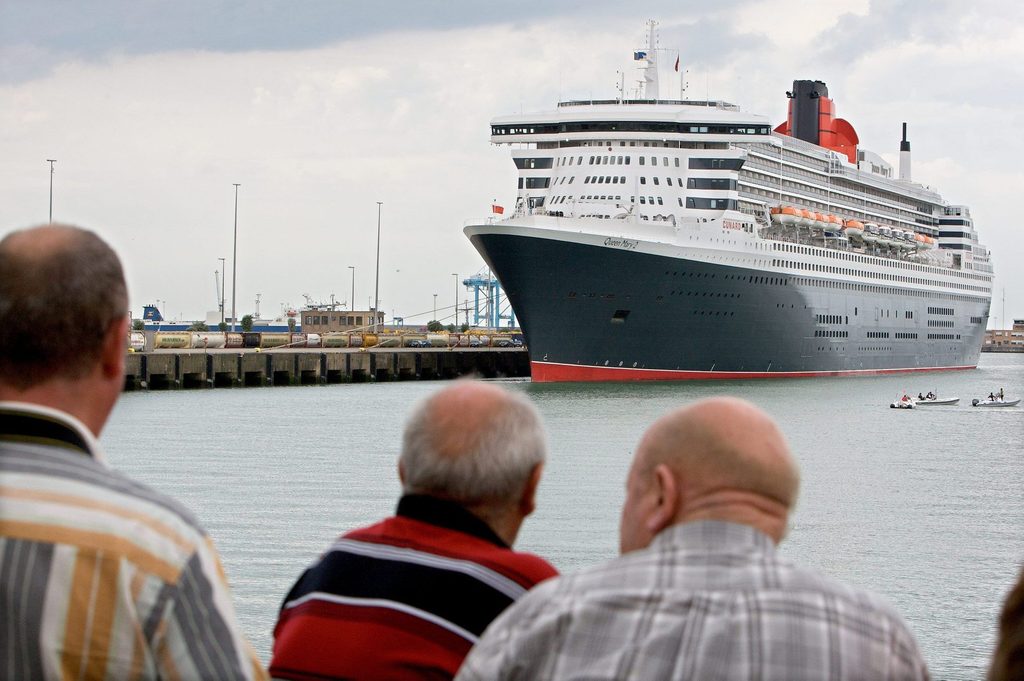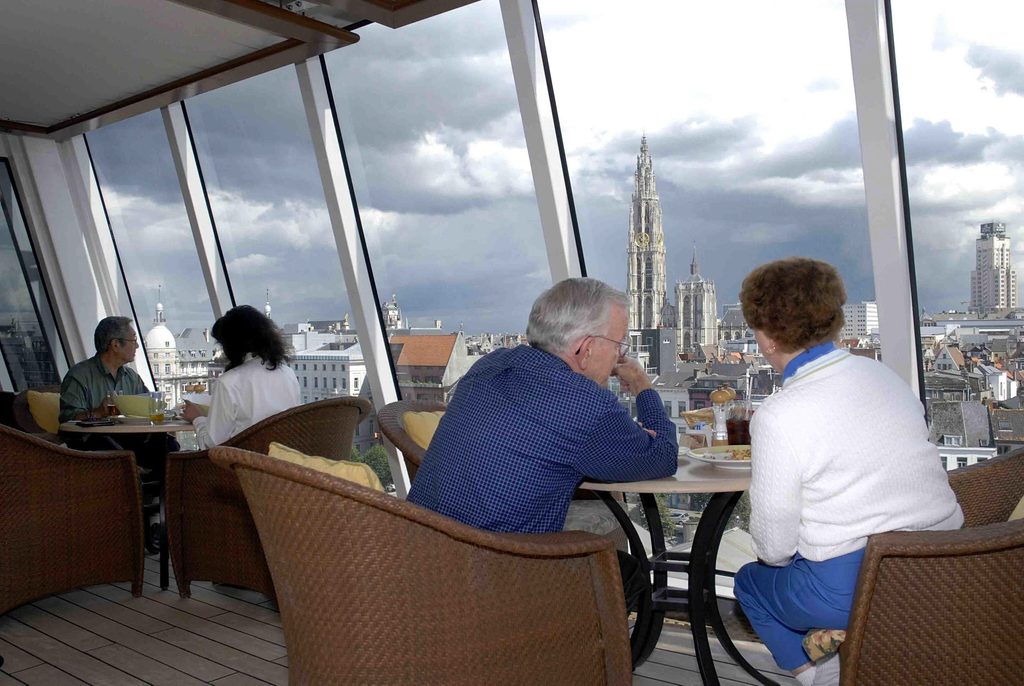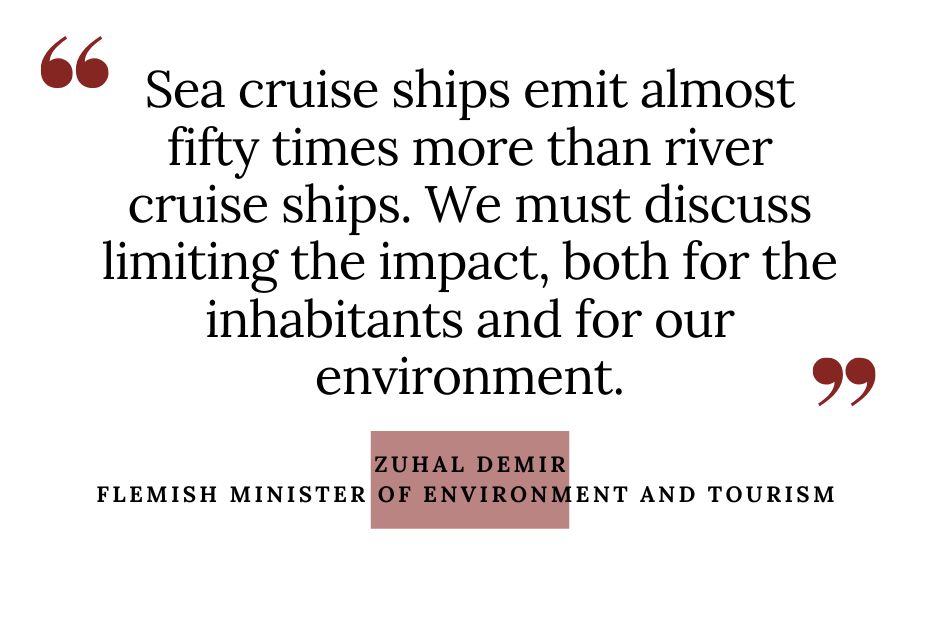According to reports in the Belgian press, residents of Bruges, Ghent and Antwerp are fast falling out of love with tourists from cruise ships that visit their cities.
A study by the Flemish Tourism Office highlights how the tourists that arrive on ships that dock in coastal towns are unpopular with locals, despite the financial benefits they might bring to local economies. The findings have led Flemish Minister of Environment and Tourism Zuhal Demir to call for on sector to rethink its business model.
As in previous studies, a large proportion of respondents indicated that they want fewer cruise tourists. A survey in 2017 showed that 20% of local residents would prefer to see fewer gigantic ships dock. By 2021, that share had risen to about 50%. "That is a huge increase in a short period of time," researcher Marjan Nauwelaert told Belga News Agency. "In Bruges, it's 57%."
Cruise ships are seen as the cause of overcrowding in city centres and the general perception is negative, even in places where the percentage of cruise tourists is rather small, the study shows. However, residents of Ghent, Antwerp and Bruges are more tolerant of 'ordinary' tourists that have not arrived by the mega-boats.

The Cunard cruise ship Queen Mary II, Tuesday 21 July 2009, as it arrives at the port of Zeebrugge. Credit: Belga / Kurt Desplenter
Half of respondents stated that cruises have a negative impact on the environment. The ships not only emit CO2 but also sulphur dioxide, nitrogen and particulate matter.
The study consequently recommends additional measures to address these issues: "The pandemic caused the number of cruises to plummet but the figures are rising rapidly again," Nauwelaer states. "If we look at European reports and the figures from the ports, the cruise industry has no intention of downsizing."
Flanders and Brussels attract more than half a million cruise passengers a year. This brings in about €25 million, a fraction of the total value of the tourism sector, which is around €5 billion. Minister Demir therefore wants to use the study to enter into dialogue with the cities concerned about the future of cruise tourism.
"Cruise tourism does not generate the largest revenue but it does generate a lot of pollution," Demir stated. "Moreover, the balance with the support base among the residents does not always seem to be present. I want to redesign cruise tourism and restore that balance."
"This report puts forward concrete recommendations such as distributing cruise tourists more evenly and restricting certain market segments and ships. Sea cruise ships emit almost fifty times more than river cruise ships. The debate must be held about limiting and spreading the impact, both for the inhabitants and for our environment."
The Flemish Tourism Office intends to present the report to the relevant committee in the Flemish Parliament in the coming weeks. Demir will then host a consultation on the future of cruise tourism in Flanders with the city authorities and representatives of the sector later this year.


